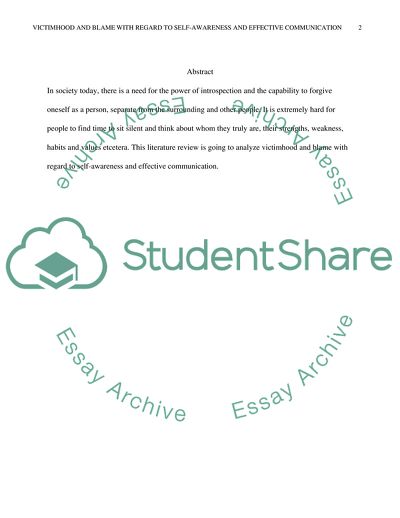Cite this document
(Victimhood and Blame with Regard to Self-awareness and Effective Communication Case Study Example | Topics and Well Written Essays - 2750 words, n.d.)
Victimhood and Blame with Regard to Self-awareness and Effective Communication Case Study Example | Topics and Well Written Essays - 2750 words. https://studentshare.org/journalism-communication/1792915-victimhood-and-blame-with-regard-to-self-awarness-and-effective-communication
Victimhood and Blame with Regard to Self-awareness and Effective Communication Case Study Example | Topics and Well Written Essays - 2750 words. https://studentshare.org/journalism-communication/1792915-victimhood-and-blame-with-regard-to-self-awarness-and-effective-communication
(Victimhood and Blame With Regard to Self-Awareness and Effective Communication Case Study Example | Topics and Well Written Essays - 2750 Words)
Victimhood and Blame With Regard to Self-Awareness and Effective Communication Case Study Example | Topics and Well Written Essays - 2750 Words. https://studentshare.org/journalism-communication/1792915-victimhood-and-blame-with-regard-to-self-awarness-and-effective-communication.
Victimhood and Blame With Regard to Self-Awareness and Effective Communication Case Study Example | Topics and Well Written Essays - 2750 Words. https://studentshare.org/journalism-communication/1792915-victimhood-and-blame-with-regard-to-self-awarness-and-effective-communication.
“Victimhood and Blame With Regard to Self-Awareness and Effective Communication Case Study Example | Topics and Well Written Essays - 2750 Words”. https://studentshare.org/journalism-communication/1792915-victimhood-and-blame-with-regard-to-self-awarness-and-effective-communication.


